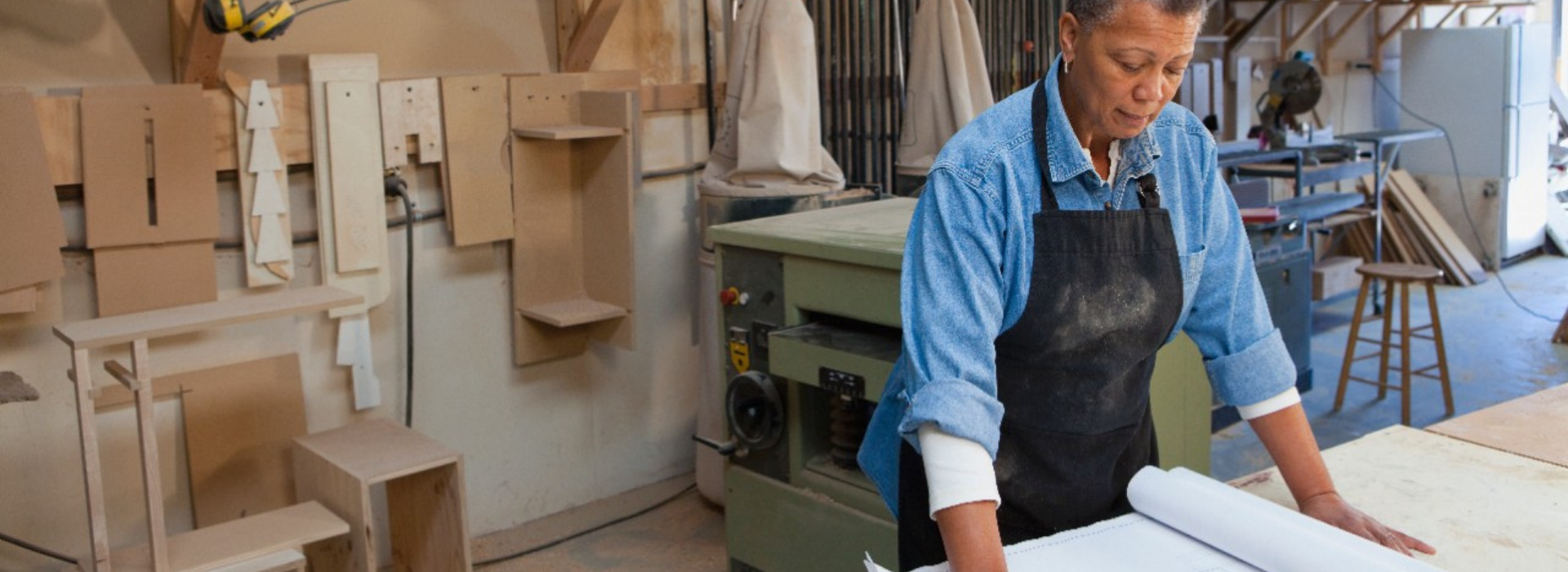
Economic mobility requires benefits that move with workers
October 28, 2020 | By Parag MehtaIn the U.S., the rise of the gig economy, along with COVID-related job losses, has left many without traditional benefits and the flexibility to move benefits across jobs. Reimagining this complex network can bring financial security.
When I worked in the federal government, my colleagues and I never referred to our agency as the U.S. Department of Labor. We called it the Department of Good Jobs for Everyone.
And what defines a good job? It’s a job that has a fair and living wage. It’s a job that empowers workers, where they feel like they have control over their destiny. It’s a workplace that is safe — not only in terms of health and safety regulations but also a place where they can bring their whole selves to work, where they don’t have to worry about being bullied or terrorized. It’s a workplace that is diverse — that looks like the communities in which the workers live.
But one of the most important parts of a good job is that it provides people with financial security and economic mobility. Whether they’re in traditional nine-to-five jobs, or doing part-time work, freelancing or juggling multiple gigs, they should feel that sense of financial security and economic mobility — and a big part of that is benefits.
Many of us forget that today’s complex and fragmented system of public and private benefits — health insurance, paid leave, unemployment insurance and the like — has not always been around. It is a byproduct of the Great Depression, part of the reforms of the New Deal. And here we are, nearly a century later, and many things have changed, from the loss of manufacturing jobs to the rise of the service economy. But the way we deliver benefits hasn’t, and that way disproportionately excludes many of the U.S.’s 53 million low-wage workers, 61 million workers of color, and 15 million in nontraditional work arrangements.
At the Mastercard Center for Inclusive Growth, we've been talking to workers deeply affected by the lack of access to benefits and supporting research around these issues. What they say they want is more control over their finances. One way to get that is by divorcing benefits from the employer-employee relationship and by removing the geographic location so that as you move from job to job and place to place, your benefits can move with you.
Together with the Aspen Institute, the Center formed the Global Inclusive Growth Partnership to combine our expertise and networks to address systemic issues such as the need for portable benefits. Our Benefits21 initiative is designed to ensure financial security and economic dignity for all workers by modernizing these systems. With a framework for designing an integrated system of benefits that is people-centric, inclusive, portable and interoperable, we can invest now in initiatives that lay the groundwork for a rebuilding a more inclusive and sustainable economy, one that benefits all workers.
And we are. Earlier this month, Stride, the leading portable benefits platform for independent workers, partnered with Mastercard to provide customers with the ability to offer cardholders in the U.S. access to simple and affordable health, dental and vision coverage plans. Jobble, a community of more than 2 million on-demand workers in the delivery, warehouse, grocery and restaurant sectors, and Black-owned fintech Mobility Capital Finance (MoCaFi) are among Mastercard’s first customers to use Stride’s portable benefits platform.
Going forward, Mastercard plans to offer nontraditional workers a wider range of benefits’ choices, including insurance, financial management, education and offers. The portable benefits initiative aims to enable Mastercard partners to deliver relevant benefits to these workers, ensuring they have a safety net to prepare them for the future, wherever they choose to work and whatever they choose to do.
More than 44 million American workers lost their jobs in the first three months of the COVID-19 lockdowns. It is more urgent than ever to bring policymakers, legislators, benefits administrators, researchers, and tech innovators together to advance solutions that can ensure the economic dignity for all workers.
We can come out of this period stronger and more resilient than before. But it requires intentionality. We must be intentional about building a better, more inclusive economy, not just rebuilding back to where we started. And that requires the courage to imagine that this time could be different. After the plague came the Renaissance. The pandemic has made it clear that we are all part of an interconnected system, and with that realization comes the responsibility to help those in need today, and to commit to making tomorrow more just and more equitable than yesterday.
